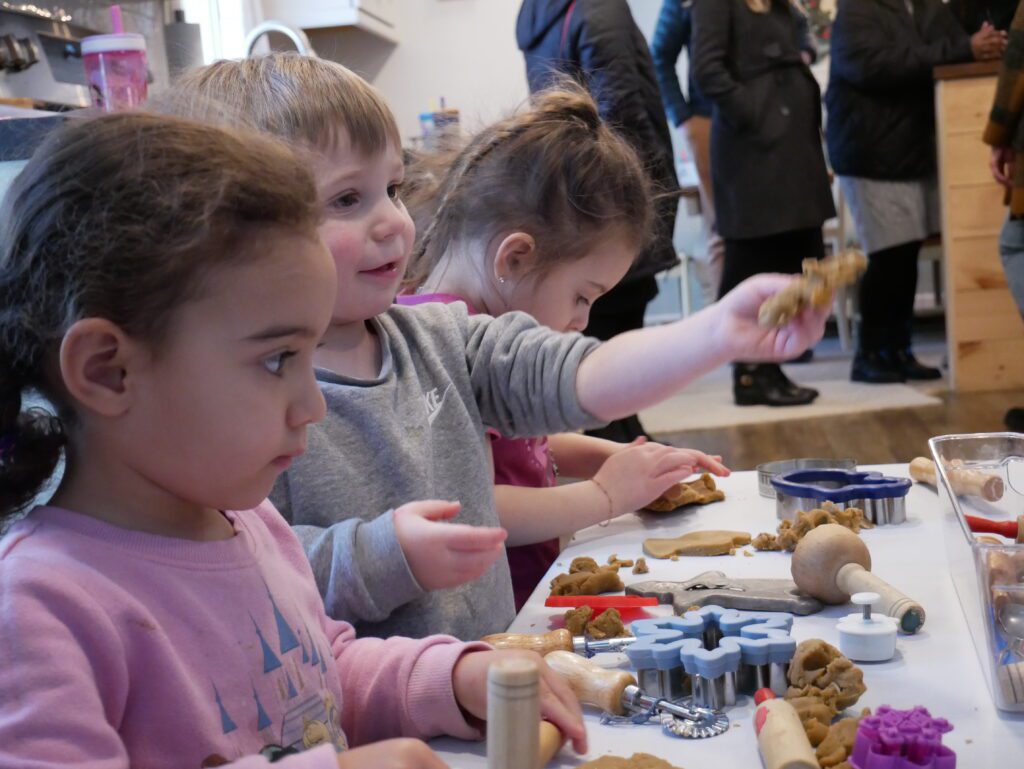Will the state 'make a down payment on our young people's future'?
Early Bird readers, hello again. Newcomers, welcome! If you were forwarded this email, you can sign up here to receive it every two weeks, and join our conversation on issues facing North Carolina’s young children and those who support them. If you’re already a subscriber, please help us reach more people by sharing this with your friends and co-workers interested in early childhood education.

State lawmakers will create a two-year budget over the coming months. We’ve got you covered on the basics of state government, the key players in the early childhood policy landscape, and the key child care policy ideas at play this session.
From Senate President Pro Tempore Phil Berger’s opening session remarks to Lt. Gov. Rachel Hunt’s policy package, leaders from across the aisle are placing child care among their top priorities.
Making progress in access and affordability will require funding. The two big questions facing policymakers are: Where should that funding come from, and where should it go?
Early childhood caucus co-chairs (from last session, and likely this session too) told me they’re looking at models that split the responsibility between multiple entities and levels of state government. Sen. Jay Chaudhuri, D-Wake, said it will all come down to finding a dedicated state funding stream for early childhood programs.
“That’ll be one of the key budget questions that lawmakers need to ask, is whether we’re willing to make a down payment on our our young people’s future,” Chaudhuri said.
No matter where the funding comes from, legislators will have to decide how to spend it. I broke down the options in four main categories: supports for existing and new child care programs, supports to recruit and retain teachers, supports to help families afford care, and supports for early childhood administration.
Policymakers will be making these decisions while the compensation grants propping up the system are set run out in March. In the meantime, we’re continuing to track program closures. Katie’s most recent analysis found the state experienced a net loss of 5.6% from February 2020 to November 2024.
Meanwhile, quality standards for child care are changing. The state Child Care Commission is accepting feedback on the proposed changes to QRIS through April 4, via online and written comments and an in-person hearing on March 26. The changes would give child care facilities three pathways (instead of one) to earn ratings, lower formal education requirements, and include new kinds of standards like family and community engagement.
Thanks for reading, and for all you do for young children.
More from EdNC on early childhood
What to watch in child care during the 2025 legislative session
Senate President Pro Tempore Phil Berger, R-Guilford, listed child care as one of the top challenges facing state legislators in...Child care quality ratings are changing. Here's how to provide feedback.
Members of the public may weigh in through April 4 on proposed changes to how the state rates the quality...'We have to have action' to halt, reverse net loss of licensed child care programs
The number of licensed child care programs in North Carolina continues to decline following the expiration of federal pandemic-era funding....Perspective | Educate N.C.’s new legislators on early childhood priorities
The 2024 election brings new opportunities and a fresh slate of decision-makers ready to shape the future of our state....Perspective | Funding for literacy coaching support is making a difference in districts like Dare County Schools
Thanks to the vision of North Carolina state leaders and policymakers as well as dedicated funding from N.C. General Assembly,...Early ed, higher ed, funding, AI, WNC, and more: Hunt Institute convenes legislators to talk about education
The Hunt Institute does not lobby. They do not have a legislative agenda. Established in 2001, what they do, according...The big picture for little kids
News & Research
-
1 in 5 child care workers is an immigrant. Trump’s deportations and raids have many terrified - From The Hechinger Report
-
Child Care and Early Learning: Explore State Data - From Center for American Progress
-
How Intergenerational Day Centers Benefit Children, Families, Seniors and Providers - From Early Learning Nation
-
Pilot Program Insulates Home-Based Child Care Providers from Income Volatility - From The 74 Million
-
Work Continues to Include Family Child Care Providers in Public Pre-K Systems - From New America
-
Universal child care for 2-year-olds? It’s what some NYC advocates and elected officials want. - From Chalkbeat New York
-
Senators renew push for paid leave tax credit, but experts say it doesn’t reach most workers - From The 19th News
Taking flight! Opportunities to spread your wings
-
Screenings of "American Coup: Wilmington 1898" - From PBS North Carolina
PBS North Carolina is hosting free screenings for community members (Feb. 20 in Winston-Salem) and educators (Feb. 25 in Elizabeth City and Feb. 26 in Wilmington) of the documentary, “American Coup: Wilmington 1898.”
From PBS: “Discover the story of the deadly 1898 race massacre and coup d’état in Wilmington, North Carolina, when white supremacists overthrew the multi-racial government of the state’s largest city through a campaign of violence and intimidation.”
-
An in-person lecture on play-based early childhood engagement - From Duke University's Center for Child and Family Policy
Hear from Mariah Douglass Bruehl, CEO of Playful Learning (a curriculum and play-based method), on March 6, from 3:30 to 4:30, on engaging instructional strategies, classroom design, and family partnerships centered on play.
-
A webinar to learn best practices to engage dual-language learners - From Ohio State University's Crane Center for Early Childhood Research and Policy
On March 5, from noon to 1 p.m., hear from Dr. Ji-Young Choi, associate professor in human development and family science, who will “explore equitable classroom environments for linguistically diverse children.”
-
An educator training webinar on discipline - From Healthy Social Behaviors Helpline
Talk to experts on this webinar, Feb. 18 from 7 to 8 p.m., about how to incorporate logical consequences in early childhood classrooms, and how to discern between helping children understand consequences and punishing them.


